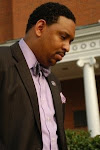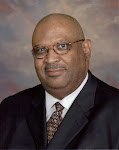 Last Saturday, I reluctantly attended a birthday party with a friend, because I did not know the person throwing the party and I was sure that I would be one of two black people there. As expected, I was one of the two. Instead of being discouraged, I circled the room and introduced myself to those I have not met. After a couple of minutes, I entered a conversation with a first year student and he asked me whether I thought Duke was conservative or liberal. I answered, “ I feel like it’s conservative because womanism or feminism is not taught much, at least not in it’s own context.” He responded, “Yes, but there is the Gender, Theology, and Ministry Certificate.” I said, “But the only people that would be exposed to those issues would be the ones interested in it anyway. Not everyone has the chance to learn it.” I continued to tell him why I thought Duke Divinity School was conservative, and ended with the argument saying “feminism, is my thing.” He rebutted. “My thing is Christianity !”
Last Saturday, I reluctantly attended a birthday party with a friend, because I did not know the person throwing the party and I was sure that I would be one of two black people there. As expected, I was one of the two. Instead of being discouraged, I circled the room and introduced myself to those I have not met. After a couple of minutes, I entered a conversation with a first year student and he asked me whether I thought Duke was conservative or liberal. I answered, “ I feel like it’s conservative because womanism or feminism is not taught much, at least not in it’s own context.” He responded, “Yes, but there is the Gender, Theology, and Ministry Certificate.” I said, “But the only people that would be exposed to those issues would be the ones interested in it anyway. Not everyone has the chance to learn it.” I continued to tell him why I thought Duke Divinity School was conservative, and ended with the argument saying “feminism, is my thing.” He rebutted. “My thing is Christianity !”With this statement, I felt that he was implying that Christianity was not my priority because of my interest in issues with women and women of color. He was asking me to choose one, either Christianity, or womanism. This led me to an important question. When thinking about identity, should one be able to distinguish between their Christian identity and other identities, such as race, gender, socioeconomic status, or ethnicity? If so, how does one choose?
Last week in Christian Theology with Dr. J Kameron Carter, we were discussing the Eucharist and baptism. He juxtaposed identity and politics with the Eucharist and baptism, arguing that our identity begins with our baptism. Baptism is the “death, to the economic, power, and political structure of things.” After we are baptized, all of our identities, race, gender, or otherwise do not exist. However, at the beginning of the course, Carter began with the argument that racial classification comes from a grave theological mistake that suggested that the Christianization and baptism of enslaved Africans was directly tied to their new identity as Black, because Christianity oversaw colonialism and enslavement. In this instance, baptism was the catalyst of identities outside of Christianity. Enslaved Africans were, in a sense, baptized into Blackness.
During the Pilgrimage trip to Brazil, (summer 2008), our group visited the Mercado Modelo, a very old marketplace in Salvador, Bahia. We entered the dungeon of the Mercado, the very same place where enslaved Africans were brought until someone wanted to buy them upstairs on the main level. In the Mercado, we saw small statues of the Catholic saints, which was for some Africans their first encounter with Christianity. In this moment, we witnessed how Christianity oversaw enslavement.
Generations later, many Afro-Brazilians identified themselves as Catholic, but they were Afro-Brazilian by nature of their skin color and economic status. However, it doesn't matter what their religion is, because their skin color most of the time determines what type job they have, what their education level is, and how they are perceived by others around them.
So, to say that we are all baptized into one identity-----our identities----Black, White, Latino, man, woman, or other---- is not accurate because of our identity in Christ. Our complex identity seems to ignore the fact that we still live in this world of injustice based on skin color, gender, and sexuality. It not only ignores it, but we are also encouraged to choose between our Christian identities and other important identities. If we were all one identity in Christ, there would be no racial or economic hierarchies.
For example, when people look at me they cannot see my Christianity and forget about my Blackness or my womanhood. Naming myself as a womanist caused someone to imply that Christianity was not my primary concern, but that's not true. So the question I guess I am addressing is this: Can one choose between their Christian identities and other identities? I do not think we can. Being a Black woman prompts me to speak to injustice, especially when injustice is based on identity. Being a Christian prompts me to model justice after Jesus. I cannot choose between my identities, however, I will use all of them to speak for those who have been silenced thus far.






















1 comment:
Excellent one.
Indian Vedic contribution is a reservoir of Vibrant Information and Harmonious Creativity. May the Womb of Nature Embrace all with Tranquil Blessings from this day forward. Let this attract one's attention affecting them Positively. It is a Sanctuary of the Self , a Creative Venue which serves as an Enduring Expression of Lightness, where a peaceful Atmosphere with Sunlight Flows and serene atmosphere prevail.
In the storm of life we struggle through myriads of stimuli of pressure, stress, and muti-problems that seek for a solution and answer. We are so suppressed by the routine of this every life style that most of us seem helpless. However, if we look closely to ancient techniques we shall discover the magnificent way to understand and realize the ones around us and mostly ourselves. If only we could stop for a moment and allow this to happen. May all beings be happy (Loka Samastha Sukhino Bhavanthu)
The ancient Hindu philosophy of keepiing mind and body for the well being, has entered the managerial, medical and judicial domain of the world. Today it has found its place as an alternative to the theory of modern management and also as a means to bring back the right path of peace and prosperity for the human beings. Let me bow to Indian Maharishi Veda Vysa with folded hands who helped in removing the impurities of the mind through his writings on Vedas, impurities of speech through his writings on puranas, and impurities of body through his writings on other sacred texts.
Post a Comment